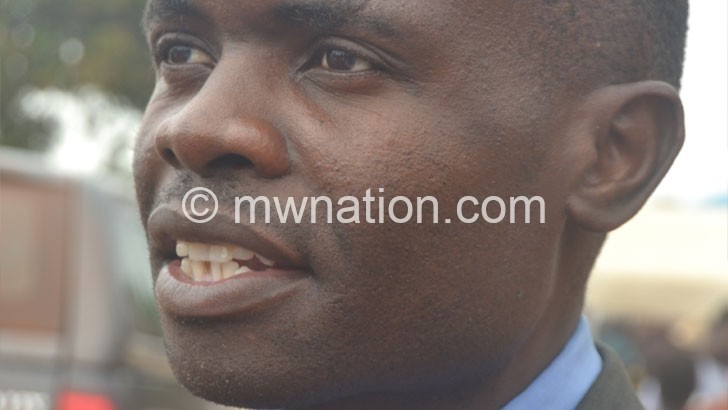Drug shortage hits hospitals
At 9.20am, Elita Mangani, 47, takes her position in one of the long queues at Queen Elizabeth Central Hospital (QECH) pharmacy to receive medicine prescribed for a tumour in her stomach.
Tired of standing, she leaves the line to sit on a concrete bench, a yard away. Anxiously, she watches the line move. Finally, she walks back to take her position—only two people ahead of her.
But her excitement of reaching the tiny window at the pharmacy quickly turns to disappointment.
“There is no tramadol. Go buy it at the pharmacy,” she is told.

Grudgingly, Mangani walks out, skirting around the zig-zag lines of patients that by now had spilled out into the long corridor.
We catch up with her. She says she has no money to buy the drug.
“I was referred to QECH from Thyolo District Hospital as an outpatient two weeks ago. But on two occasions, I have not been able to receive tramadol,” Mangani says.
She says well-wishers have supported her with transport from Thyolo.
Mangani is not the only one who has returned from the central hospital’s pharmacy empty-handed.
Some patients at the emergency ward, labour and paediatric sections have also failed to get essential drugs for their ailments.
Seated on a lawn by the antenatal section, Eliza Phiri (not real name), but who is a guardian to a patient at the hospital, cursed her poverty.
She says her daughter was lying in gynaecology ward waiting to go to the theatre. The daughter had a Caesarian section two weeks ago and her wound had opened up.
“They asked me to buy diclofenac suppository, which they do not have,” she says.
At a pharmacy across Chipembere Highway at Ginnery Corner, diclofenac suppository costs K2 000 a pack.
But Phiri, who came on an ambulance, does not have that much, let alone a tambala to afford mandasi (fritters) for food.
In a vox pop interview with patients and guardians at the referral hospital, we established that drugs such as brufen, diclofenac, tramadol, magnesium, ciprofloxacin and loperamide were out of stock.
A pharmacist, who spoke on condition of anonymity, said the hospital has run out of some essential drugs, but that the situation has improved since last month.
When contacted, QECH director SamsomMdolo said he was in a meeting and later his phone went unanswered.
At Kamuzu Central Hospital, a referral facility in Lilongwe, the situation is more critical for children whose drugs are out of stock.
Mothers with their babies were seen leaving empty-handed yesterday after waiting long for drugs at the hospital’s pharmacy.
During a tour of the facility, patients in the out-patient department and in wards were receiving medicine without problems.
But inside sources at the hospital indicated that this was an improvement from last week when there was a serious drug shortage.
“If you came last week, patients were being sent to buy paracetamol at drug stores. There was a serious shortage of drugs. The situation improved from Monday last week because we have procured from our private suppliers,” said the officer, .
Bwaila Hospital, also in Lilongwe, had no essential drugs such as antibiotics and pain killers as confirmed yesterday by an officer who opted for anonymity.
Lilongwe District Health office spokesperson Richard Mvula said the Bwaila Hospital case is not unique as the drug shortage is a national problem.
Ministry of Health Principal Secretary Dan Namarika declined to comment on the situation, saying hospital officials are better placed to comment as central hospitals were decentralised.
He said: “The ministry’s role is to ensure that the facilities have money, which was provided in the budget.”
Namarika said hospitals should check with the Central Medical Stores Trust (CMST) for drugs.
“But I am told new supplies arrived yesterday [Wednesday] so, they can buy if they have money,” he said.
CMST public relations officer Herbert Chandilanga confirmed a shortage of supply for anti-biotics and other items. But he said the situation would improve as some consignments have been received.
In the 2019/20 National Budget, the Ministry of Health was allotted K101 billion, with K25.9 billion for the procurement of drugs, of which K10.6 billion is for central hospitals and K15.3 billion for district hospitals while K5.8 billion has been allocated for ambulance procurement.





